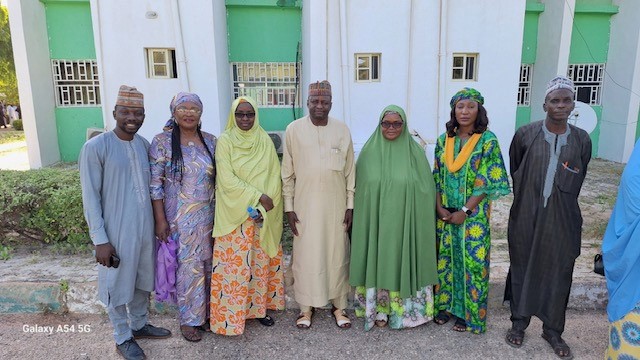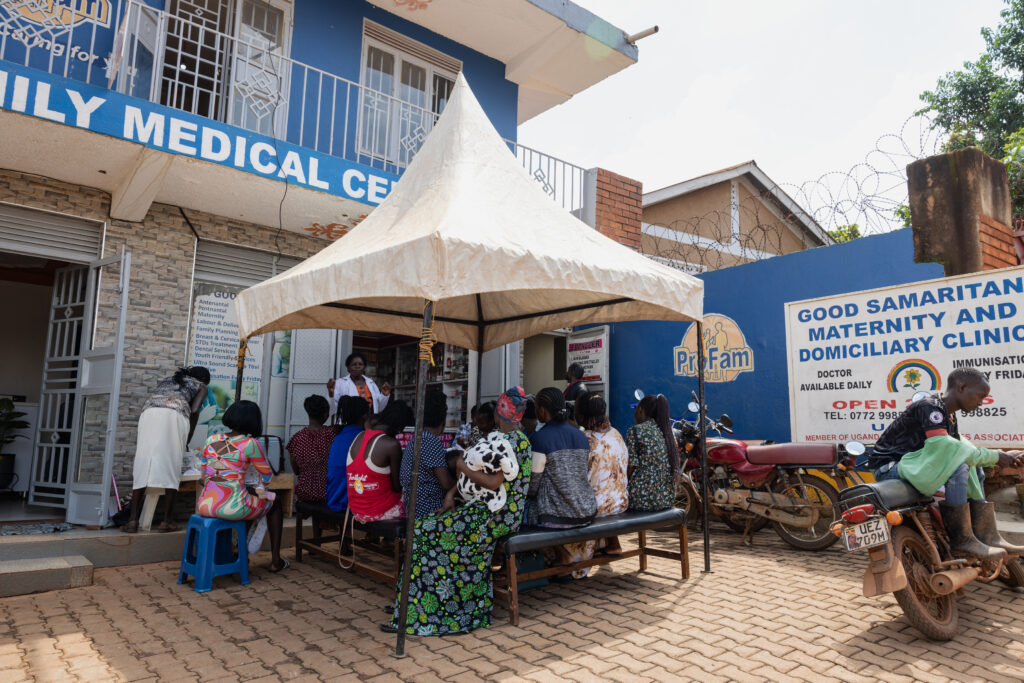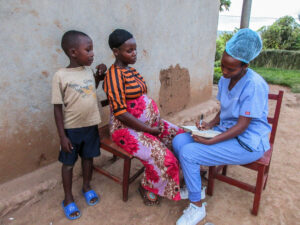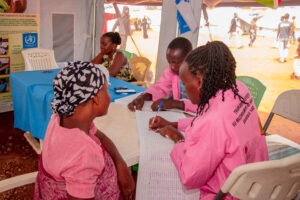In Their Own Words: Midwives Navigating Crisis and Conflict

Insights from Midwifery Students and Graduates in Northeast Nigeria and Somalia
Each year on 05 May, the world marks the International Day of the Midwife – a moment to honour the life-saving role midwives play in protecting the health of women and newborns.
This year’s theme, Midwives: Critical in Every Crisis resonates deeply in places like Northeast Nigeria and Somalia, where midwives deliver essential care amid conflict, limited resources, and persistent risks to their safety.
In Yobe State, located in Northeast Nigeria, years of violence and displacement driven by the Boko Haram insurgency have severely disrupted midwifery training, recruitment, and retention. In Somalia, decades of conflict and recurrent flooding and drought have displaced millions, leaving entire communities without access to midwives.
Yet despite these overwhelming challenges, midwives continue to show up—delivering care with courage and compassion.
To understand their realities, the EQUAL research consortium conducted in-depth interviews and focus group discussions with midwifery students, recent graduates, and early-career midwives in both countries. This blog shares their voices as they reflect on their motivations, fears, frustrations, and hopes for the future.
| Country | Maternal Mortality Ratio | Newborn Mortality Rate | Stillbirth Rate | Midwives per 10,000 people | Nursing and Midwifery Personnel per 10,000 people |
| Somalia | 563 | 35 | 35 | 1.5 | 1.7 |
| Nigeria | 993 | 34 | 24 | NA | 16.5 |
 A Call to Service
A Call to Service
Across Northeast Nigeria and Somalia, midwives described their decision to enter the profession as a calling:
“My aunt died in childbirth, my grandmother died in childbirth, and my mother grew up without a mother. That’s why I wanted to become a midwife” (Graduate, Somalia).
For some, childhood experiences ignited their passion to serve:
“A mother sitting under a tree called me over. She had given birth there and needed help. I used a stone to cut the cord… Every time I recall that moment, I am overcome with pain” (Graduate, Somalia).
Others were driven by a desire to fill gaps in care—compelled to return home and serve the most vulnerable:
“The community lacks professionals who can provide care, so I wanted to study community midwifery and return to offer my services” (Graduate, Nigeria).
“What excites me is seeing a mother who gave birth with my help, walking with her child years later. It brings me joy and pride. I didn’t learn this just for income; I learned it to enrich my mind and help my community” (Graduate, Somalia).
Working in Conflict
But midwifery in crisis zones is not just about passion and dedication—it’s about survival, resourcefulness, and resilience.
‘’It’s a red zone, there is Boko Haram there, we are always expecting something will happen, we are not safe’’ (Graduate, Nigeria). There were a lot of incidents one time I went from Mogadishu to Balcad and that night there was an attack by al-Shabab at the time I was very scared. I thought I was going to die our centre is near where the government military resided so whenever there is clashes I fear for my life although people say the place we live is near the government’s base and its better I think people living inside the city far from the bases are better. Fortunately, the attack mostly happens at night when our place is closed, and we are at home” (Graduate, Somalia).
Midwives describe locking clinic doors during night shifts and changing out of uniforms to avoid being identified and kidnapped. Some families refuse to let their daughters accept job offers in rural areas, where the need is greatest.
‘’There are times you will hear people running. They tell you that the Boko Haram people are coming. Since you are already in your uniform, you have to look for clothes to change to, because if they identify you as a health worker, they will kidnap you. It’s a matter of life and death’’ (Student, Nigeria).
“I received a job offer… but my parents rejected it. I could not risk going to a place that is not secure for me” (Graduate, Somalia).
 A Quest for Recognition and Respect
A Quest for Recognition and Respect
Even within their own communities, midwives struggle for respect, especially young, unmarried women:
“Some communities do not support young, educated midwives… they believe only experienced traditional birth attendants can perform this job” (Graduate, Somalia).
‘‘If a man comes that wants to marry you, his family will tell him that you are not always at home and you sleep out, not knowing that you are out there saving the lives of people. Still they stigmatise you and call you rude names. Even if he agrees to the marriage, his family will push back against it’’ (Student, Nigeria).
Yet change is happening, and every safe birth helps to shift perceptions. Education and professionalism have become a sign of inspiration:
“The hard work of young midwives proves the advantage of girls’ education” (Graduate, Somalia).
Many spoke of how midwifery helped them develop a sense of agency and ambition, despite social pressure to maintain traditional gender roles:
“When I started midwifery, I became very ambitious. Moreover, when I began practicing and saved a mother and her child, I became filled with happiness” (Student, Somalia).
“Most of the time, we are told to get married. Huge pressure is put on us when we are not ready for it, and they believe that an educated girl will end up in the kitchen” (Student, Somalia).
Trained and Prepared Yet Under-Supported
Many midwives feel their education gave them the foundational knowledge and confidence to manage straightforward births:
“We were taught from admission to delivery and after—danger signs, postpartum care, emergencies—we covered it all” (Student, Somalia).
“Because I have the necessary knowledge, both theorical and practical, I am confident as a midwife that I can attend straightforward cases in the primary health care level. The ones I cannot attempt, I refer to the tertiary hospital level’’ (Student, Nigeria).
But despite feeling prepared, gaps remain. Skills like neonatal resuscitation, ultrasound, or managing complications are rarely taught in depth, leaving early career midwives overwhelmed, especially in rural placements with limited mentorship and supervision:
“Universities focus primarily on general theories and foundational knowledge but don’t put much emphasis on the practical skills you need in the workplace. When you start working, you need to know several things, like medications used to manage preeclampsia, eclampsia, and other complications. You also need to know the names of all the equipment, their usage, and the sterilisation. You also need to learn how to interact with patients, understand their behaviours, and manage their needs effectively” (Graduate, Somalia).
Securing a job presents another major challenge. Many volunteer for months, while others face discrimination or nepotism in hiring processes:
“I applied for eight jobs that I was qualified for. I didn’t even get shortlisted. It’s really disappointing” (Graduate, Somalia).
 What Matters Most to Midwives
What Matters Most to Midwives
When asked about their dream job, midwives didn’t mention salaries. Instead they cited safety, support, and the chance to serve their communities:
“If there is no security, nothing else matters” (Graduate, Somalia).
“If I get paid, that’s great. If not, I’ll still do the work. Mothers need us” (Graduate, Somalia).
A Job Description with Risk and Rewards
Midwives in fragile settings are not just helping women give birth—they are navigating conflict, facing stigma, and working within systems that too often fail them and those they care for.
On International Day of the Midwife, recognition is not enough. It’s time for action. Governments, donors, and global partners must step up to ensure fair pay, safe conditions, ongoing training, and meaningful support for midwives in the most challenging contexts:
“Studying in our country can be challenging. There’s a chance that when you step out the door, you will hear a bomb go off close to you, or the roads will end up being closed and you will have to walk the rest of the day. If you leave early, you might encounter a traffic jam or have to disembark from the bus and walk to class. That’s the worst. But you have to look towards your goals; there’s no winning anything without struggle. You need to be strong-willed and believe you can overcome this” (Student, Somalia).
“This job is for the hereafter and good deeds. The salary is low, but there is always a person who needs your help” (Graduate, Somalia).
Midwives are on the frontlines every day and they shouldn’t stand alone—it’s time for systems and leaders to step up.
Learn more about studies capturing these experiences in Somalia and Nigeria.